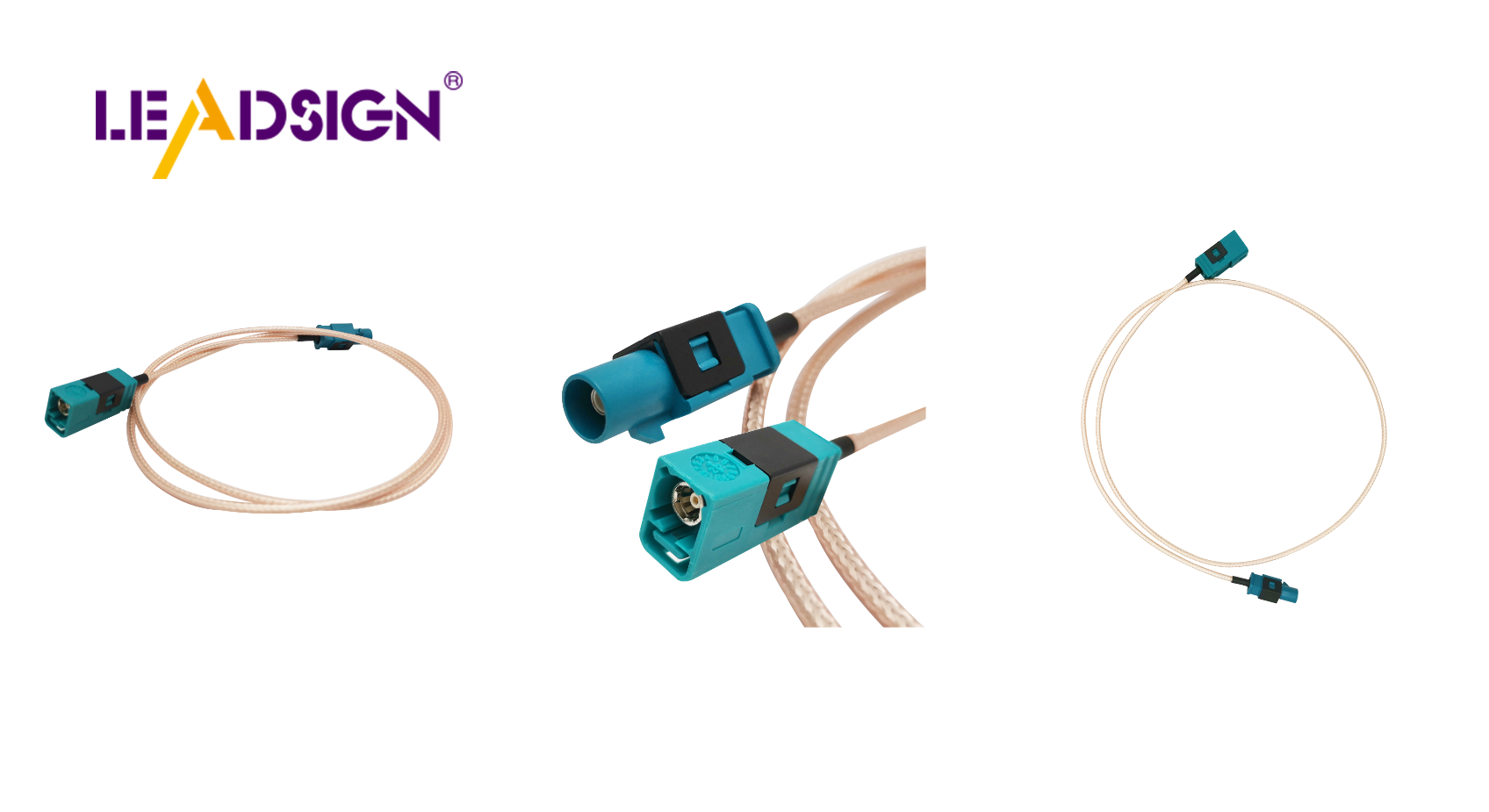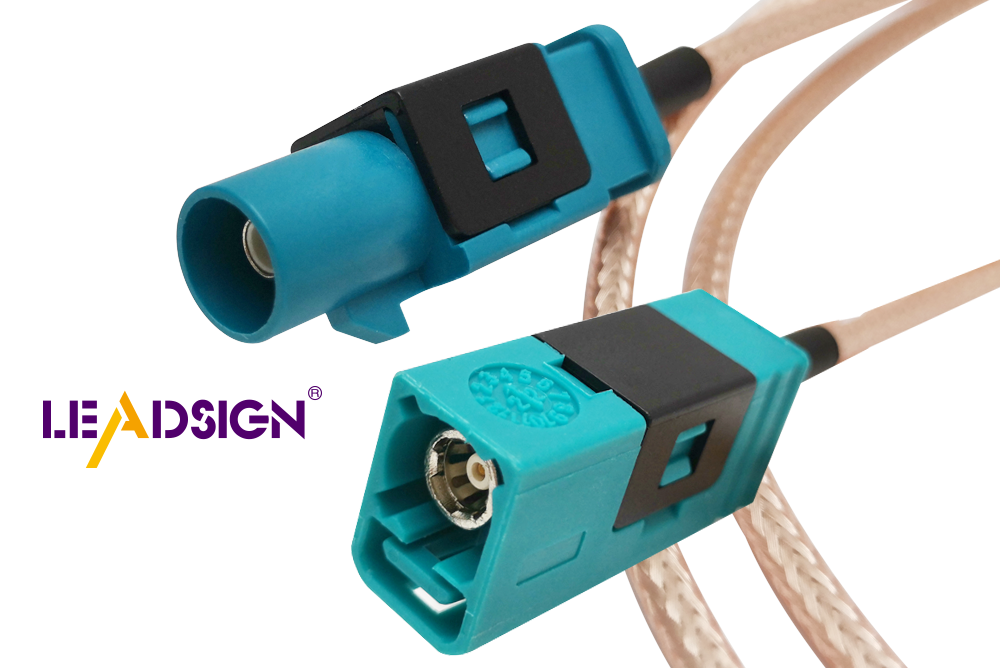Types of Electrical Connectors and Their Role in Wire Tape for Cars

Electrical connectors are important for your car to work well. They help power and signals move smoothly in the car. Without good connectors, your car's wires would often have problems. There are different types of connectors electrical for different jobs. For example, inline wire splice connectors and tap wire connectors keep connections strong. Wire tape helps by keeping wires neat and safe. It stops short circuits and protects from weather. Knowing about electrical connectors is key to keeping your car reliable.
Key Takeaways
Understanding different types of electrical connectors, such as crimp, twist-on, and push-in, is essential for maintaining your car's electrical system.
Using high-quality connectors ensures strong, reliable connections that prevent electrical issues and enhance safety.
Wire tape is crucial for organizing and protecting wires, preventing short circuits, and shielding against environmental factors like moisture and heat.
Proper installation of connectors can significantly improve the longevity and performance of your car's electrical components.
Choosing connectors that are compatible with your car's systems is vital to avoid malfunctions and ensure efficient operation.
Regular maintenance and organization of wires using wire tape can simplify repairs and save time in the long run.
Consider eco-friendly connector options to reduce environmental impact while maintaining the integrity of your car's electrical system.
Types of Electrical Connectors
Crimp Connectors
Description and uses in cars
Crimp connectors are very common in cars. They make strong connections by squeezing a metal piece around a bare wire. This keeps the wire tight and safe, even when the car shakes. You can find crimp connectors in many car parts like the engine and dashboard. They help send signals to different car systems. These connectors are important for keeping your car's wires working well.
Installation methods
To use crimp connectors, you need a special tool. First, take off the wire's cover to show the metal. Put the bare wire into the connector's barrel. Use the tool to squeeze the connector onto the wire. This makes a strong hold. Crimp connectors are easy to use and last long. Some are waterproof, which is good for wet places.
Twist-On Connectors
Description and uses in cars
Twist-on connectors, or wire nuts, are also popular in cars. They join wires by twisting them inside a plastic cap. They are great for quick fixes or joining many wires. In cars, they are used for lights and extra gadgets. They make fast and safe connections without special tools.
Installation methods
To use twist-on connectors, strip the wire ends. Twist the wires together. Put the connector on and twist it tight. This keeps the wires from coming loose. Some have wings for better grip, making them easier to use by hand.
Push-In Connectors
Description and uses in cars
Push-in connectors are a new way to connect wires fast. You push the bare wire into a slot, and a spring holds it. They are good for small spaces like behind dashboards. They also work in fuse boxes and control panels.
Installation methods
To use push-in connectors, strip the wire ends and push them into the slots. The spring inside holds the wires tight. This is quick and easy, with no twisting needed. They come in different sizes to fit your car's wires.
Electrical Wire Connectors and Wire Tape

Insulation and Protection
Connectors are key for car wires. They help power flow well. Without good insulation, they can break. Wire tape helps here.
How wire tape prevents short circuits
Wire tape keeps connectors safe. It wraps wires to stop them from touching metal. This stops short circuits that can harm your car. The tape keeps connectors working well.
Protection against environmental factors
Car connectors face water, dust, and heat changes. Wire tape protects them from these. It keeps them dry and clean. In tough places, like cars and boats, special connectors with heat shrink are best. They last long and work well.
Organization and Maintenance
Organized wires make fixing cars easier. Connectors with tape help keep wires neat.
Keeping wires organized
Wire tape bundles wires neatly. This cuts cable mess by half. It helps find wires fast. Neat wires stop tangles and keep connections strong. This is key in tight spots like doors.
Simplifying maintenance and repairs
Neat wires save time fixing cars. Tape helps find connector problems fast. It makes changing parts easy. Tape keeps wires safe and your car running well.
Durability and Environmental Considerations for Wire Connector Types
When picking car connectors, think about how long they last. Also, consider how they handle different weather. This keeps your car working well.
Material Durability
Types of materials used in connectors
Car connectors use strong stuff to handle tough spots. Makers use nylon, polypropylene, and thermoplastic elastomers. These give connectors strength and resist chemicals. They stay stable in heat. This means they handle shakes and wetness without breaking.
Longevity in automotive environments
Connectors in cars face stress. They must work when the car shakes or gets hot. Good connectors last long in these conditions. They keep your car's system safe. Connectors like ring and fork terminals join wires well. This keeps systems working for years.
Environmental Impact
Resistance to temperature and moisture
Car connectors must resist heat and wetness. Cars face rain, snow, and heat. Good connectors, like ring and fork terminals, work in these conditions. They stop water from entering wires, preventing harm. This keeps your car's system safe.
Eco-friendly options
Some connectors use eco-friendly materials. These reduce harm to the planet. They use safe, recyclable stuff. Choosing them helps the earth and keeps your car's system strong.
Picking the right electrical connectors for your car is important. They make sure connections are safe and work well. Here are some easy tips:
Compatibility: Check that the connectors fit your car's systems. Wrong connectors can make things work badly.
Quality: Buy good-quality connectors. They give strong, low-resistance links, making things safer and more reliable.
Wire tape helps by keeping wires tidy and safe. Together, they keep your car's electrical parts working well. By choosing the right pieces, your car will run smoothly and efficiently.
FAQ
What Are Car Electrical Connectors?
Car electrical connectors join circuits in your car. They help power and signals move easily. Connectors come in many shapes and sizes. They connect single wires or many wires together. Good connections help your car's electrical system work well.
Why Are High-Quality Connectors Important?
Good connectors keep your car's electrical system safe and reliable. Bad connectors can cause poor connections, shorts, or even fires. Using quality connectors keeps your car safe and running smoothly.
How Do I Choose the Right Car Electrical Connector?
Pick connectors that fit your car's needs. Make sure they meet car industry standards. Check they work with your car's systems to avoid problems.
What Types of Car Electrical Connectors Are Available?
There are many types of connectors. Common ones are crimp, twist-on, and push-in connectors. Each type has special features and ways to install them. They are used for different jobs in your car.
How Do Crimp Connectors Work?
Crimp connectors squeeze a metal piece around a wire. This makes a strong connection. They are used in cars because they keep wires tight and safe, even when the car shakes.
What Are Twist-On Connectors Used For?
Twist-on connectors, or wire nuts, join wires quickly. They are good for fast fixes or joining many wires. In cars, they are used for lights and gadgets.
Are Push-In Connectors Easy to Use?
Yes, push-in connectors are simple to use. Strip the wire ends and push them into slots. A spring holds the wires tight. They are handy for small spaces like dashboards.
How Does Wire Tape Help in Car Wiring?
Wire tape keeps car wires neat and safe. It stops wires from touching metal and causing short circuits. It also protects against water, dust, and heat changes.
Can Wire Tape Simplify Car Maintenance?
Yes! Wire tape keeps wires tidy, making it easy to find and fix problems. It bundles wires neatly, saving time and effort during repairs.
What Should I Consider When Selecting Connectors?
Think about compatibility, quality, and durability. Make sure connectors fit your car's systems and are made from strong materials. This keeps your car's electrical system safe and efficient.
See Also
Why Fakra Connectors Matter in Today's Vehicles
Significance of Fakra Connectors in Automotive Sector
Key Role of FAKRA Connectors in Auto Applications
Understanding Ford's Fakra Connectors: A Comprehensive Guide

